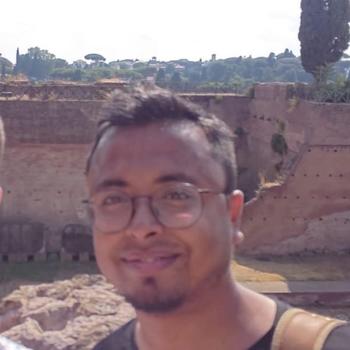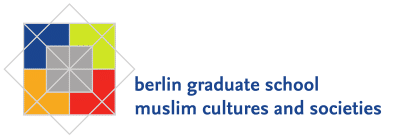Tirthankar Chakraborty

Doktorand / PhD candidate (Prof. Dr. Jonas Bens)
Project title: ‘Pedagogy of Fear’: An Ethnohistorical study of the institutionalisation of fear to create a subservient citizenry. (DAAD Doctoral Fellow)
Education:
2021 - present
Dr. phil. Candidate, Social and Cultural Anthropology
Institute of Social and Cultural Anthropology, Freie Universität Berlin
Thesis (working title) - ‘Pedagogy of Fear’: An Ethnohistorical study of the institutionalisation of fear to create a subservient citizenry.
Funded by Deutscher Akademischer Austauschdienst (DAAD)
2018 – 2020
MA Development, Environment, Societies and History of South Asia
Double Majors – Anthropology (Specialisation) and Political Science
South Asia Institute, Ruprecht-Karls-Universität Heidelberg, Germany
Thesis - Travelling in the Cosmos: Exploring Rurban Sensibility amongst the Rural Cosmopolitans of Hyderabad, India.
1.6 / ‘Gut’
2014 – 2016
MA English
School of Humanities, University of Hyderabad, India
8.5 / First Class with Distinction
2011 – 2014
BA (Honours) English, Minors in History and Political Science
RKMRC(Autonomous), Narendrapur, University of Calcutta, India
First Class Honours.
Research and Full-time Work Position(s)
02/2018 - 09/2018 Research Assistant, The University of Chicago - The Law School.
08/2017 - 01/2018 Independent Researcher/Research Intern, Hyderabad Urban Lab, India
09/2016 - 07/2017 Associate, Azim Premji Foundation, India
12/2015 - 06/2016 Research Assistant, School of Economics, University of Hyderabad
05/2015 - 07/2015 Summer Fellow, Indian Institute of Technology, Madras - India.
Grants and Awards:
- DAAD Research Grant for Doctoral Studies, 2022-23.
- National University of Singapore Research Scholarship, 2022-2026. (Offer declined)
- Award for innovative tools to address sexual violence, Universität Heidelberg, 2021. EUR 500 (split)
- Hardship Grant, University Heidelberg, 2020. EUR 2232
- Tuition Waiver Grant to Exceptional International Students. Universität Heidelberg, 2018. EUR 6000
- First position for Commendable Seminar Lecture, RKMRC(A), Narendrapur, 2013.
Membership:
German Anthropological Association (DGSKA)
European Association of Social Anthropologists (EASA)
European Network for Psychological Anthropology (ENPA)
European Association of South Asian Studies (EASAS)
I am a social and cultural anthropologist, specializing in psychological and political anthropology with a regional focus in South Asia, especially India. My work relates to affect and emotion, historical institutionalism, governance, memory, and gender-based violence. Methodologically, I draw from interdisciplinary approaches, including long-term embedded ethnographic fieldwork and archival research. My research agenda is to develop new concepts and methods addressing the interplay of psyche, power, and socio-political mobility in the changing contours of democratic practices, and explore new pedagogies to counter authoritarianism/authoritarian tendencies.
Research Interests:
Affect and Emotion, Political and Psychological Anthropology, Historical Institutionalism, State and Institution, South Asia, India, Gender based Violence (GBV), Memory Studies, Migration and Social Mobility, Ethnographic Methods, Social Movements.
Doctoral Thesis (working) Title: ‘Pedagogy of Fear’1: An Ethnohistorical study of the institutionalisation of fear to create a subservient citizenry.
Abstract:
In this doctoral dissertation, I examine how a democratic state used fear to create a subservient sensibility in the citizens, not as a by-product but as a direct method/tool of governing by shaping behaviour. Through an ethnohistorical method of intensive fieldwork and archival research, this project will explore the practices of arousing fear in the citizenry, how this fear was experienced, and how it shaped the everyday lives of those who were targetted, the university-going student population in Calcutta during the 1960s and 70s – during the Naxalite revolution. I argue it to be the point of departure as massive surveillance, the crackdown on dissent, and governance through fear were routinized in the Indian polity. Using the analytical framework of political affect, this study will theorise the institutionalisation of fear in the mind, body and habits of ordinary and extra- ordinary members of the student population during a revolutionary movement. This refers to the politics of memory, affective behaviours, change-in-sensibility and ideas, and how individuals and societies 'fall in line' to not be an outlier in the states' perspective. The routinization of governing by fear and the ‘culture of silence’ (Freire 2000) instilled by the democratic state has not been explored, especially in the context of South Asia, and particularly, India. Unlike the studies which have focused on the threats as subjects to be feared, this study wants to focus on the institutionalisation of fear amongst the subjects who are deemed as threats - which also has hitherto not been studied.
Doctoral Funding: DAAD Research Grant for Doctoral Studies
Fieldwork experience:
Hyderabad, India (2016 – 5 months; 2017 - 4 months; 2018 – 4 months)
Bhubaneswar, India (2018 – 3 months)
Almora, India (2016-17 – 10 months) (teacher-educator)
Kolkata, India (2013 – 3 months, 2014 – 1 month, 2022 – 2 months)
Delhi, India (2016 – 1.5 months)
Heidelberg, Germany (2019 – 3 months)
Publications:
Journal Articles:
(In preparation) “Framing ‘Fear for the Future’ as a Concept to Study the Embodied Subjectification of University Students and Youth – An Introduction.” Special Issue on Sensory & Affective Methodologies, from Shaping Asia Network conference, NUS - Singapore. [proposal accepted]
(Under review). “The Politics of Translating Cosmopolitics – Positing the Embodied Ontology of the Racialised Fieldworker.” New Diversities. Max Planck Institute of Ethnic and Religious Diversity, Göttingen.
2023. “Situating the silencing and de-silencing of traumatic memories in 2016 students’ protests in Hyderabad, India – An Auto-ethnographic Analysis”. cult.psych: Journal of Cultural Psychology. https://doi.org/10.1007/s43638-023-00055-5
Book Chapters:
(Forthcoming, 2023). ‘Uninterrupted Flow of a ‘revolution’: Inability of the Naxalite movement to address the Caste question.’ In Caste and Naxalite Movement. Pradip Basu (ed). Gangchil Publishers: Kolkata.
(Forthcoming, 2023) “Understanding sexual violence in the university space – Notes from Heidelberg.” Special issue by ASA, UK, Anthropology and the University.
2022. ‘Towards a Reading of the Theory of Institutional Change.’ In Theories Interaction Politics, edited by Pradip Basu, 32-49. Gangchil Publishers: Kolkata.
Academic blogs, reports:
2021. “Student Protests and Repression in India: On Trauma, Embodied Violence and Practices of (De-)Silencing”, 7-10. GAMSzine (2), Humboldt University
2021. ‘Commentary on Gender Inequality and Religious Personal Laws’, EnGender! 3(4):19-21.
2020. (with Alicka Machurich) "Report on the prevalence of and awareness about sexual harassment on Heidelberg University Campus." Published on the Heidelberg University website and can be seen here.


